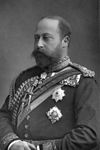Portal:University of Oxford
| Main page | Indices | Projects |
The University of Oxford portal
The University of Oxford is a collegiate research university in Oxford, England. There is evidence of teaching as early as 1096, making it the oldest university in the English-speaking world and the world's second-oldest university in continuous operation. It grew rapidly from 1167, when Henry II banned English students from attending the University of Paris. After disputes between students and Oxford townsfolk in 1209, some academics fled north-east to Cambridge where they established what became the University of Cambridge. The two English ancient universities share many common features and are jointly referred to as Oxbridge.
The University of Oxford is made up of thirty-nine semi-autonomous constituent colleges, four permanent private halls, and a range of academic departments which are organised into four divisions. Each college is a self-governing institution within the university, controlling its own membership and having its own internal structure and activities. All students are members of a college. Traditionally, each of Oxford's constituent colleges is associated with another of the colleges in the University of Cambridge, with the only exceptional addition of Trinity College, Dublin. It does not have a main campus, and its buildings and facilities are scattered throughout the city centre. Undergraduate teaching at Oxford consists of lectures, small-group tutorials at the colleges and halls, seminars, laboratory work and occasionally further tutorials provided by the central university faculties and departments. Postgraduate teaching is provided in a predominantly centralised fashion.
Oxford operates the Ashmolean Museum, the world's oldest university museum; Oxford University Press, the largest university press in the world; and the largest academic library system nationwide. In the fiscal year ending 31 July 2023, the university had a total consolidated income of £2.92 billion, of which £789 million was from research grants and contracts.
Oxford has educated a wide range of notable alumni, including 30 prime ministers of the United Kingdom and many heads of state and government around the world. 73 Nobel Prize laureates, 4 Fields Medalists, and 6 Turing Award winners have matriculated, worked, or held visiting fellowships at the University of Oxford, while its alumni have won 160 Olympic medals. Oxford is the home of numerous scholarships, including the Rhodes Scholarship, one of the oldest international graduate scholarship programmes. (Full article...)
Selected article
The university's position of Keeper of the Archives dates from 1634, although its records pre-date this, and Oxford claims to have one of the longest continuous record-keeping traditions in Britain. Records were initially kept in the Priory of St Frideswide, moving to the University Church of St Mary the Virgin in the 14th century. The archives were left in considerable disarray by a burglary in 1544, and remained in chaos until Brian Twyne was appointed the first Keeper of the Archives in 1634 as a reward for his work preparing new statutes for the university. Under Twyne and his successor as Keeper (Gerard Langbaine), the archives were moved into one of the rooms in the Tower of the Five Orders in the Bodleian Library; three of the wooden presses that were built at that time to store them are still in use. The third to hold the position, John Wallis (pictured), prepared an index of the collection that was still used in the 20th century. (Full article...)
Selected biography
Selected college or hall
Nuffield College, to the west of the city centre, was founded in 1937 by the car manufacturer and philanthropist Lord Nuffield. He gave the site to the university and £900,000 (approximately £246M in modern terms) to build and endow the college. His intention had been to establish a college for engineering and business methods, but he was persuaded to let the money be used for a social sciences college instead – a decision that he sometimes later regretted, although he was sufficiently pleased with the college to leave it the bulk of his estate in his will. Construction began in 1949 and was finished in 1960, to a design by Austen Harrison. The main tower, about 150 feet (46 m) tall, holds the library and is a noted Oxford landmark. Nuffield is an all-graduate college (and was Oxford's first college for postgraduates only), primarily for research in economics, politics and sociology; there are about 75 students and 60 Fellows (many holding university posts), headed by the economist Andrew Dilnot as Warden. Former students include Kofi Abrefa Busia (former Prime Minister of Ghana), the British politician Patricia Hewitt, and the economist Robert Skidelsky. (Full article...)
Selected image

Did you know
Articles from Wikipedia's "Did You Know" archives about the university and people associated with it:
- ... that Welsh politician David Lloyd George (pictured) said that he would prize no honour more highly than his Honorary Fellowship of Jesus College?
- ... that Thomas Johnes planted three million trees to make his Hafod Uchtryd estate picturesque?
- ... that the position of Dean Ireland's Professor of the Exegesis of Holy Scripture at Oxford was endowed by John Ireland, who was Dean of Westminster for more than 25 years?
- ... that deforestation in Staffordshire inspired contributions from Erasmus Darwin and Anna Seward to a book of poetry about Needwood Forest by Francis Mundy?
- ... that medieval scholar Erika Cheetham interpreted Nostradamus' writings as prophecies of Napoleon, Hitler, and the establishment of modern Israel?
Selected quotation
Selected panorama
Wikimedia
The following Wikimedia Foundation sister projects provide more on this subject:
-
Commons
Free media repository -
Wikibooks
Free textbooks and manuals -
Wikidata
Free knowledge base -
Wikinews
Free-content news -
Wikiquote
Collection of quotations -
Wikisource
Free-content library -
Wikiversity
Free learning tools -
Wikivoyage
Free travel guide -
Wiktionary
Dictionary and thesaurus















